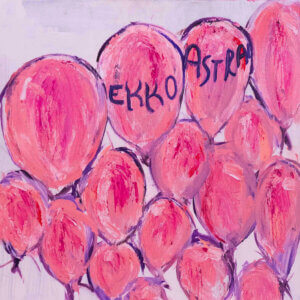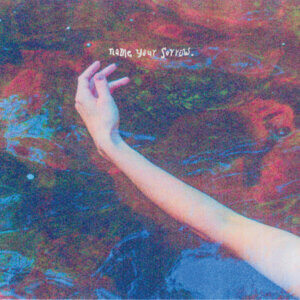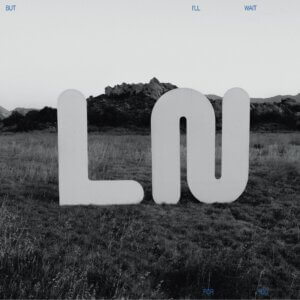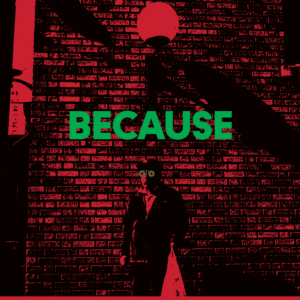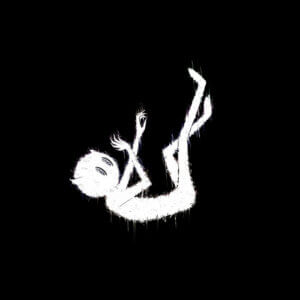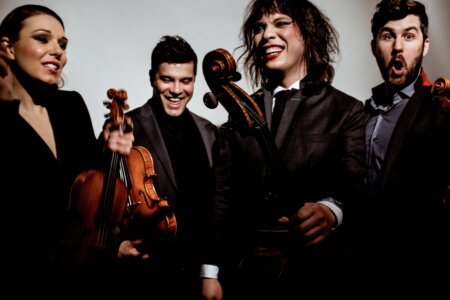A chat with the always interesting Kool Keith
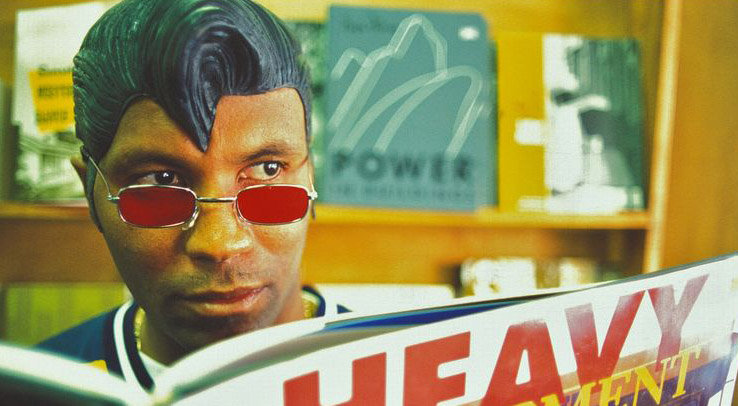
Dr. Octagon. Black Elvis. Number One Producer. Call him what you will, but there is no denying that Kool Keith is one of the most interesting figures in hip-hop lore. Never one to be confused for a throwback nostalgic act, Keith has just released one of his greatest albums in years. Feature Magnetic is Kool Keith’s sixth album in the last two years and he’s still finding new things to stay. Standout songs “Life”, “Super Hero”, and “Peer Pressure” are proof that Kool Keith is still one of the most distinctive characters in music. Whereas many of his 90’s contemporaries have faded into the history books of hip hop, Kool Keith is still on the cutting edge of production techniques. We reached Kool Keith at home in New York City:
Northern Transmissions: You’ve been prolific of late with six albums in the last two years; after so many years in the business, what keeps you going?
Kool Keith: I just like making good music, it keeps me busy and youthful. Some rappers are more corporate; they make unnatural records. It’s not real, it’s made more for a company. I’ve worked with producers in the past where the project was whipped up together for the label instead of focusing on natural recording. I wake up every day and make natural songs.
NT: What are you most excited for people to hear on Feature Magnetic?
KK: Just the distinctive way I’m making music. Rather than following the same route that’s been done for over twenty years, I have my own ways of making music. The next generation needs to know that new music can be made with all sorts of unique structure. There are no laws for the way the snare hits, the way the drum hits, the way everything comes in. The laws of the past have to be totally broken.
NT: The album intro begins by saying we live in a world “full of cheesecake rappers”. I was wondering what exactly is a “cheesecake rapper”?
KK: It’s a rapper who’s just cheese, you know? Just cheese. Someone not saying anything, just cheese. Right now a lot of rappers only know how to rap on certain beats, or can only rap on one subject. I think that I’m a lot more versatile an artist; I cover a lot of vocal ranges, cadences, and subjects. Right now there are a lot of rappers who are stuck in one lane all the time; they’re either gangster or they’re trap, they don’t know how to branch out. I think a lot of it comes from people having low self-esteem. They can only write songs the way people around them tell them to.
NT: If you were talking to one of these cheesecake rappers, how would you push the limits of their comfort zone?
KK: On this album I brought a lot of rappers into my element to show them another dimension of how you can make music. I don’t give rappers a rope around their necks where they can’t feel free to say what they want. Of course I’ve worked with a lot of rappers and producers in my life that may not give you that freedom. I let myself write what I want to write, and so I give a lot of rappers the comfort of being free in their writing. A lot of people want to write the songs for you, I’m not like that, I like the freedom.
NT: On some songs you seem far out and fictional like “Super Hero”, however “Peer Pressure” is more personal and revelatory. Can you touch on where “Peer Pressure” came from?
KK: I wrote the song specifically for Slug from Atmosphere and I to collaborate on because he’s a touchy person who writes a lot about things that kids relate to. It’s about how a lot of kids are picked on by other children and are forced to make tough decisions by being bullied into joining gangs, or being bullied to shoot somebody, or to rob another kid.
I thought of the peer pressure I faced when I was bullied growing up. A lot of kids were bigger than my brother and I – we were always slim and skinny – and kids would try to come up and take our money, but we wouldn’t let that happen. After a while it went the other way around; we would smack other kids who would come up to us. As a kid I was a good kicker, so when bullies came up to us and tried to take our bikes I would roundhouse kick them in their jaws or something…while being on the bike at the same time. I hate bullies, I’m totally against bullying. I had to smack a lot of bullies growing up. Don’t let a bully affect you.
NT: Feature Magnetic is guest heavy. What was the writing process like working with so many people?
KK: All the songs start with me, but I give freedom of space to the rappers to say what they want to say. The beats are always funky so that I stay soulful, and then if a guest likes one I’ll let them write around it. I show them different things because a lot of rappers never get a chance to work with me on a really different project. It’s something new for them. A lot of rappers have been in a certain dimension for a while, but I can take them out of the box and compromise what they’re doing. I write soulful distinctive stuff with a brand new sound. I don’t compromise to fit one of the schools of rap, I go straight up the middle.
NT: Who were you most excited about working with on this record? Was there someone that you were waiting for a while to perform with?
KK: I was waiting for a lot of people, like Mac Mall and Necro. I was definitely waiting for MF Doom. These artists helped advance me to the final championship round of production. I ended up getting the top elite rappers to join me on this one.
NT: You worked with RZA recently on the Banks & Steelz album. If you had to work with someone from the indie-rock world (like Paul Banks of Interpol in Banks & Steelz) who would it be?
KK: That album was a fun job, RZA and Paul are two great people. RZA’s another person that reaches for different heights and tries to take rap to other levels. I definitely applaud people who always try to be new and distinctive. I think I’d like to do a song with Dave Grohl or something. Me and the Foo Fighters.
NT: The production is really polished and clear on Feature Magnetic, how has your approach to producing evolved over the years?
KK: You know I was listening to some songs I made a long time ago and I think I just always was different. I always had distinctive sounds of production that were progressive beyond their years. Like the production on my old songs still sound brand new. I think it’s the combination of sounds that don’t get old, whereas with a lot of groups they use old beats and old drums. They still sample old man stuff. I think I have a timeless way of making songs. I was making distinctive beats before Timbaland and Pharell were, I just didn’t get the spotlight or the credit for making them.
If you buy a Triton or Yamaha keyboard, there’s probably something like 1000 sounds in there, but singers today and the big music industry are all using only 3-4 sounds. I’ve always used the sounds that the music industry never used. The music industry has a set amount of sounds and it gets boring. Atlantic, Columbia, and Epic will all use the same sounds, even the same producers in the same key, which makes all the girls today not sound anywhere as distinctive as Aretha Franklin. They can all find a new girl on any day that can sound exactly the same as the others. There’s no difference. They’re promoted really high, but they all sound the same because of the presets that everybody sticks to. If you buy a Miley Cyrus, Katy Perry, or a Britney Spears record they all sound the same. They can all sing on one album together. The only person who’s distinctively different is Adele because she writes what she wants to, it’s like her voice is way off to the left side of the river and everybody else is the same. They cover a lot of the lack of talent they have by bringing out 70 dancers on stage to distract you. They’re basically trying to fool you visually. It’s an illusion trick where they use a lot of visuals to prevent you from knowing that their song is whack. People will be like, “did you see the 20 elephants on stage? They had a monkey! It was on fire on a bicycle at the top of the arena!”. It’s all made to fool you. It’s like a magic show. Unfortunately today the kids don’t know any better.
NT: You’re considered a pioneer of hip-hop, is there anything about the scene you grew up in that you feel is missing today?
KK: The kids now are lazy writers; nobody wants to write. They’ll repeat just one word through a whole song because they’re lazy. They’ll say one word for like 17 bars in a song, it’s totally hilarious the stuff that’s being made. It’s fun to entertain with kid stuff in the studio, but it’s embarrassing when you have grown people doing child things. Let a kid make a kiddy record. If you’re over 20 years old making kid stuff you’re just missing the point.
NT: Finally, “Super Hero” is one of the album’s standout tracks. If you were a super hero, what power would you have?
KK: You know that song’s a soundtrack waiting to happen for a Marvel movie. You need more soundtrack songs that fit movies. If I were a super hero I would have a heat ray that would come out of my fingers. No fire, just extreme heat that can burn your head and your skull. You better watch out, I can make your face melt in a second just by vaporizing you.
Interview by Stewart Wiseman
Latest Reviews
Tracks
Advertisement
Looking for something new to listen to?
Sign up to our all-new newsletter for top-notch reviews, news, videos and playlists.
